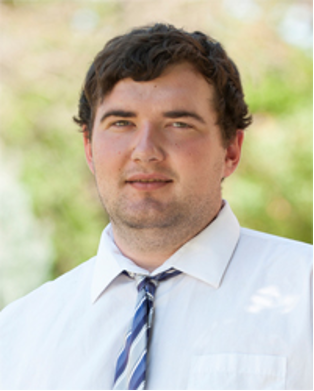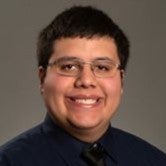Boise State students William Unger and Josue Torres-Fonseca competed this fall in Cyber Quest, an online competition hosted by the North American Cyber Range Alliance. The competition that allows participants to demonstrate their knowledge in a variety of information security realms. The goal of the program is to identify, train, recruit and place the next generation of cybersecurity professionals into the workforce.
Cyber Quest uses real-world scenarios and challenges supported by real world tools and provides a unique, realistic, operationally-based environment. In such a simulated environment the participants must work together as a team to leverage one-another’s talents and utilize their collective strengths to identify cyber threats, quickly assess network and end-point security and adapt to any changes in their digital infrastructure.

Fourth year computing doctoral student Unger competed on the winning team for the Cyberbit Student Advanced Competition. Torres-Fonseca, a junior in the computer science program competed as well, and is the current president of C^4 Club: the Competitive Cybersecurity and Cyber-Physical Club.
Both Torres-Fonseca and Unger said that the most rewarding part of Cyber Quest was the hands-on experience.
“The most rewarding part to me was the hands-on experience component of the competition, to see how the theoretical foundation of cybersecurity is applied in information security realms, and learn new tools for identifying security flaws,” said Unger.
The challenge of learning how to battle cyber attacks with the provided tools was particularly challenging, Torres-Fonseca said, and believes participating in the challenge and networking with professionals offers him a real advantage as he progresses in his cyber education.

“The most rewarding part of the competition is no doubt networking with real professionals,” said Torres-Fonseca. “I was able to get the contact information of many of the cybersecurity professionals at the event and now I have a way to ask important questions about cybersecurity in general and/or questions about working in the cybersecurity industry, which I believe will give me an even better chance of landing a cybersecurity job in the future but it will also allow me to be the best at cybersecurity as I can possibly be.”
Unger said learning the use of unfamiliar tools used in cyber applications, such as Zenoss (a monitor of services for computer network), Splunk (captures and indexes all log data for a computer network), and Palo Alto firewalls (filters inbound and outbound network traffic) provided a worthy challenge.
“Cyber Quest is a reflection of how cyber analysts are trying to solve problems. It provides an opportunity for the students to validate their knowledge and skills with practical challenges they will likely face in real world cybersecurity roles and it advances students’ knowledge from curriculum to career,” said Liljana Babinkostova, a professor of mathematics.
“Participating in computation is an important part of the learning journey in cyber,” explained Sin Ming Loo, professor of electrical and computer engineering. “Both Will and Josue were also part of the 2019 CyberForce competition. The competition tests and evaluates thinking and problem solving skills.”